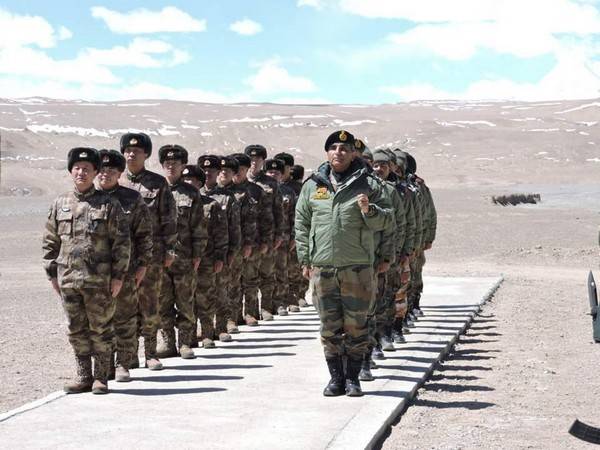Earlier this year, China had brought troops from the Tibet Military region to the Xinjiang region that is responsible for Karakoram Pass down to south Uttarakhand…reports Asian Lite News
Chinese People’s Liberation Army carried out a night battle exercise at over 16,000 feet on the heights of Xinjian, near the Indian border amid the two countries’ border dispute in eastern Ladakh and ongoing military and diplomatic talks to resolve it.
The Western Theatre Command carried out the night battle exercise recently to boost their capabilities, sources said. The theatre command oversees the Xinjiang and the Tibet autonomous regions as well as the border with India, making it the largest geographical area under one command in the PLA.
Earlier this year, China had brought troops from the Tibet Military region to the Xinjiang region that is responsible for Karakoram Pass down to south Uttarakhand. Further, they have deployed larger numbers of long-range artillery and are rapidly building infrastructure on the Tibetan plateau.
After these troops were brought, the PLA has started carrying out military exercises in the region.

Further, China has refurbished its existing airfields in Tibetan plateau that will allow twin-engines fighter aircraft to be stationed. They are currently revamping 30 airports built or under construction in Xinjiang and Tibet for military transportation.
China has revamped infrastructure in Tibet, launching a high-speed bullet train connecting provincial capital Lhasa with Nyingchi, the Tibetan border town close to Arunachal Pradesh.
The Chinese have also been rapidly enhancing military infrastructure at the Line of Actual Control (LAC) after clashes with India last year.
India too has reoriented around 50,000 troops whose main focus is now at the disputed border with China.
Both the countries decided to resolve the issue through talks.
Last month, in another major breakthrough, India and China withdrew troops from friction point, Patrolling Point (PP) 17 in Gogra at the LAC in eastern Ladakh.
Both the countries have ceased forward deployments in this area in a phased, coordinated and verified manner.
Indian military delegates will meet their Chinese counterparts to discuss disengagement at the other friction area, the Depsang plains.
The build-up in Depsang was not being considered part of the current standoff that started in May last year as escalations here took place in 2013. India has insisted during recent military commander meetings to resolve all issues across the LAC.













